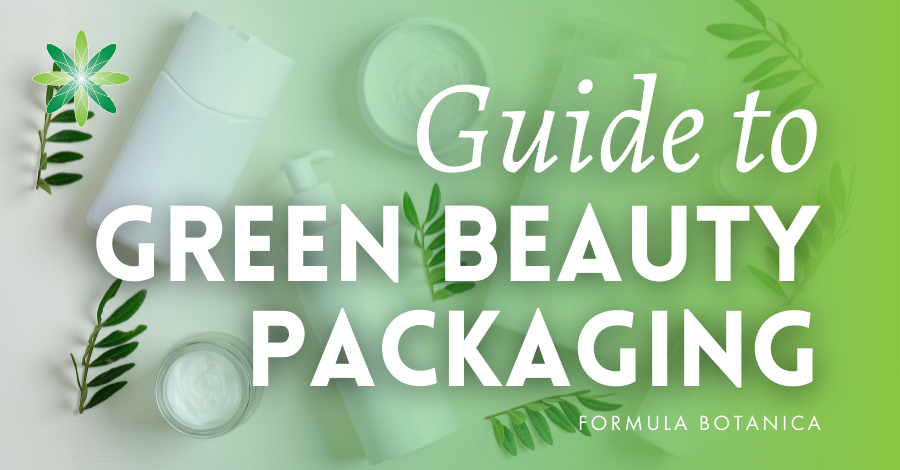Your brand name is a key factor in telling your story as a business and can have big implications for the success, or lack of, that you may experience! For this reason, we frequently see students in our community ask how to choose a name for their beauty brand.
Naming your beauty brand is one of the most important stages of creating your overall brand identity. It can make or break your brand, as a good name will lift your business up, while a bad name will drag it down. Over the years, we’ve seen some truly terrible beauty brand names in our community. We want to help you choose the right name for your beauty brand from the start.
It is very likely that you’ve already given your brand name a lot of thought. It is possible that you’ve already been running web searches for your chosen name and perhaps you’ve even already bought the web domain and reserved the social media handles. We frequently see beauty entrepreneurs choose their brand name before they’ve done any work on their overall branding strategy. Once they then realise who they are and what they stand for, they sometimes realise the name they originally chose wasn’t the right one for them.
If this sounds like you (and let’s face it, it’s unlikely that you’ve got to this stage without already having a brand name in your head, as an absolute minimum), then you need to make sure that you know who you are and what you stand for, before you choose a name for your business.
Community Poll: How did you choose a name for your beauty brand?
We polled our community to find out the methods they used for naming their brand. The results were interesting and some common themes emerged. The most popular option in our poll was people naming their brands with descriptions of the products they sell, this was closely followed by namesake brands, a popular option in the industry with many examples such as legacy brands Estée Lauder.
Not surprisingly, many brand owners were inspired by nature when naming their brands, which is particularly relevant to organic skincare and haircare formulators and reflects the connection to nature that many people crave in a busy modern world.
| Percentage | Answer |
| 31% | My beauty brand name describes the products I sell |
| 28% | I named my beauty brand after myself or a family member (often children or grandparents) |
| 19% | I created a made-up word to name my beauty brand |
| 12% | My beauty brand name describes my mission |
| 8% | My beauty brand name is a word inspired by nature |
| 3% | Other |
Poll: Formula Botanica’s Skincare Entrepreneur Mastermind Group, 171 respondents to the question “how did you choose a name for your beauty brand?”
It is notable from these results that most people either describe their products in their name (e.g. Intelligent Nutrients, Juice Beauty, Natural Deodorant Co, The Organic Pharmacy) or they name the brand after themselves or a family member. There is no right or wrong approach when it comes to naming your brand, but you may wish to consider an approach that grabs people’s attentions if you want your beauty brand to stand out in the marketplace.
Learn how to choose a name for your beauty brand #marketing #branding #beautybusiness Share on X5 points you should consider when naming your beauty brand
It doesn’t matter what approach you use to name your beauty brand. What matters is that your brand means something to you, that it embodies your brand identity and that your brand name has room for growth. It would not be wise to call your brand “Skin Serums UK” as this is too descriptive, limits you to one product type, limits you to one country and does not evoke any emotion.
On the other hand, “Green People” has allowed room for growth in its name choice, because they have been able to expand their range to offer products for children, babies, men. They also still keep true to their brand philosophy.
1. What makes your beauty brand unique?
What does your brand stand for? What will customers think of when they see and use your products? What is your brand trying to achieve? Before naming your beauty brand you need to take all of these factors into account.
Look up words and analogies and combine your words together to give you different combinations. Run some of your favourite words through the thesaurus and include synonyms that work. Even create acronyms of your words and try your best not to think about it too much. Some of your ideas will be amazing and some will be ridiculous. It is best to either do this by hand or print it out so you tangibly see how it looks in print and cross options out or edit it easily.
Following on from thinking about brand ethos, the next point to consider is what makes your brand unique. If you can weave your Unique Selling Point into your brand story, it can be impactful for consumers, letting them know at a glance what makes you stand out and what to expect when they buy from you.
2. Is your beauty brand’s name already taken?
Most business names will be taken somewhere in the world, so for that reason we recommend you check trademarks thoroughly before making a decision on your brand name. It isn’t just the brand name itself either, as you will also need to check web domains and social media handles to see who is already out there with your preferred name. We have frequently seen that many larger brands will enforce any kind of copyright or trademark infringement strictly, so you must take this very seriously when naming your beauty brand.
3. Is your beauty brand’s name easy to remember?
Don’t create a brand name that is too long. No one likes to type in long words. If they are too long to say or spell, your brand name will not be memorable for your customers. Brand names should ideally be no more than two words long. Some people even feel that your brand should not be more than 6 letters long.
When it comes to brand names, the simpler and easier to remember the better. Many of the household brands we have come to know well subscribe to this philosophy. Think for example Netflix, Hoover or Nivea. Shorter names tend to be easier to remember and so many brands will have a one word name for this reason.
4. Is your beauty brand’s name easy to understand & pronounce?
Don’t create a brand name that is so obscure or complex that your customers don’t understand what you mean. It might make sense to you, but the people around you might not understand the meaning at all. Always ask others for their feedback on your brand name.
Can your friends and family pronounce your brand name? Sometimes words that seem completely clear to us are totally obscure to those around us. Make sure you ask a lot of people to pronounce your brand name to get feedback.
5. How does your beauty brand’s name translate?
In today’s global economy, it pays to think ahead to how your brand may translate if you wish to expand from local to global in the near future. Thinking about how your brand sounds in different languages and also determining its meaning when it is translated could make the difference between doing well in a different market or failing to make an impact. Your brand name might be very innocent in your language, but might mean something completely different in a foreign language. Make sure you run your brand name through Google Translate to get a feel for any other meanings.
Even if you don’t think that you will want to expand your brand, it is important to think of the potential it has in the future, including what would happen if you were to sell it on.
Naming your brand is rarely a process that is completed overnight. Instead, you have to be patient with yourself and be flexible throughout this phase. It can feel frustrating not to have a name for your brand yet, but it is worth taking the time to get this stage of your branding strategy right. When the right name comes to you, you’ll know straight away that it fits your beauty brand.
Do you want to learn how to brand your indie beauty business and create a robust brand mission, vision, position, personality, story, value, promise, voice, experience and perception? Formula Botanica takes you by the hand to teach you how to choose a name your beauty brand and turn your formulations into a business in our award-winning online Diploma in Beauty Brand Business Management. Pre-register today.
FREE TRAINING
Learn how to become an
Organic Skincare Formulator
FREE TRAINING
How to become an
Organic Skincare Entrepreneur
FREE TRAINING
How to become an
Organic Skincare Entrepreneur
Leave us a comment

Ana Green, a beauty industry professional, worked at Formula Botanica from 2019 – 2025, first in the content team and then as Education Manager. Learn more about the Formula Botanica team here.

























